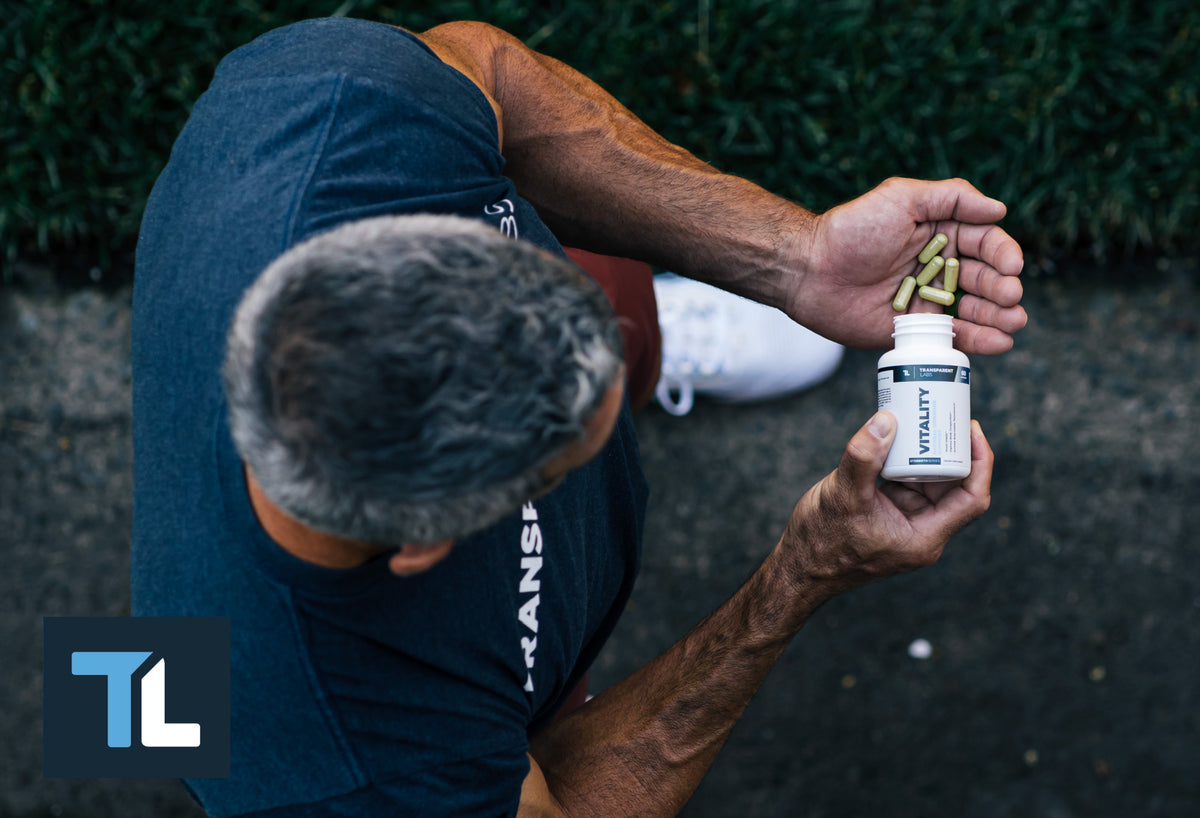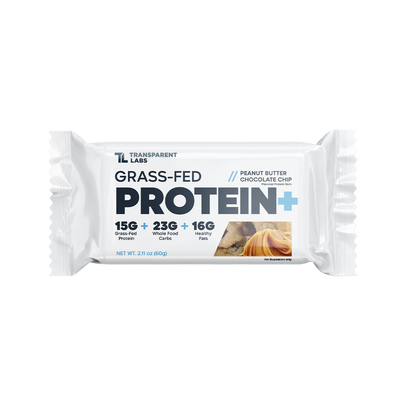The Best NAD(+) Supplements: Worth It or Worthless?

What's the Best NAD Supplement, and Is it Worth the (Steep) Cost?
Many anti-aging supplements will go so far as to claim they can make people look and feel 10, 15, or even 20 years younger by reversing the aging process. Understandably, many gerontologists and respected aging researchers have tried to distance themselves from the pseudoscience of the "anti-aging" movement [1]. From a biological standpoint, jargon like "anti-aging" more accurately describes "pro-longevity."
Let's be clear: Aging is an intrinsic part of all life. Embrace it. Aging isn't inherently "bad," and many people can now look their best, feel their best, and perform their best well into their later years. 30 is the new 20, 40 is the new 30, and so on...
Unfortunately, no data, let alone in humans, suggests that we can completely flip the aging process on its head in healthy cells — at least not through nutritional interventions. If that were the case, we could theoretically become immortal.
But there are certain micronutrients and lifestyle choices that promote healthy aging at the cellular level. As of now, arguably the most popular triumvirate of so-called "anti-aging supplements" is nicotinamide adenine dinucleotide (NAD+), nicotinamide mononucleotide (NMN), and nicotinamide riboside (NR). In this article, we'll describe the difference between these three molecules, how they influence cellular NAD(+) levels, and whether they're worth the steep cost of supplementation.
What is NAD (Nicotinamide Adenine Dinucleotide)?
Nicotinamide adenine dinucleotide, often referred to as NAD(+), is a coenzyme and oxidizing agent involved in myriad metabolic processes. As electrons are transferred between molecules during oxidation-reduction reactions, NAD+ is reduced to NADH (a NAD molecule plus hydrogen), which is then oxidized back to NAD+ in a cyclical fashion.
Beyond energy metabolism, NAD+ also serves as a substrate for various enzymes, including sirtuins, which are involved in regulating gene expression and cellular stress responses.
NAD vs. NMN. vs. NR
Nicotinamide Mononucleotide (NMN) is a precursor to NAD+ and is a nucleotide derivative of nicotinamide, nicotinamide riboside, niacin, and ribose. NMN is converted to nicotinamide riboside (NR), which then enters cells and tissues and is converted back to NMN before being converted to NAD+ through a series of enzymatic reactions. Studies have shown that NMN supplementation can increase NAD+ levels in various tissues, potentially promoting cellular energy production and supporting various physiological functions.
NR is another precursor to NAD+ and is a pyridine-nucleoside form of vitamin B3 (niacin). NR is taken up by cells directly and converted into NAD+ through a salvage pathway. NR has gained attention for its potential health benefits, including supporting cellular metabolism and mitochondrial function, but the data is still preliminary.
NAD Supplementation: Does it Slow Aging?
In vitro and in vivo studies have shown that the ratio of NAD+/NADH in cells plays a vital role in preserving DNA integrity and reducing the risk of many age-related diseases, notably cardiovascular disease and neurodegenerative diseases, by increasing sirtuin and telomerase activity [2]. A diminution of the NAD+ to NADH ratio in cells is a hallmark of aging and age-associated weight gain since these molecules are critical coenzymes for proper energy metabolism and oxidation-reduction reactions throughout the body.
Perturbed NAD+ homeostasis is also associated with greater risks of age-related diseases such as Parkinson's disease and Alzheimer's disease [3]. Thus, NAD+ precursors are a growing area of interest for mitigating aging pathologies and extending lifespan.
However, NAD supplements are hindered by poor oral bioavailability; since NMN and NR are orally bioavailable precursors of NAD+, they are promising candidates for slowing the aging process and promoting longevity [4]. Human data confirms the NAD(+)-boosting properties of NMN and NR supplements [5]. Still, it remains unclear whether this has beneficial effects in otherwise healthy, active adults with proper NAD+ homeostasis.
Ironically, calorie restriction and exercise are the most practical ways to increase the NAD+/NADH ratio and fight cellular aging [6]. If you're already doing both of those (hopefully you are), don't expect to see a huge difference from taking NAD+ precursors like NMN and NR. While NR and NMN supplements are certainly intriguing, their therapeutic potential is far from conclusive when weighing the current body of human evidence [7].
Does Telomerase Reverse Aging?
With the recent onslaught of anti-aging proponents in the alternative healthcare space, telomerase has gained praise as holding the key to "immortality." The problem with that notion is that it leads people to believe that "more telomerase activity is better," which isn't necessarily the case.
So, does taking supplements that increase telomerase activity reverse aging?
It's doubtful.
Despite many NAD+, NR, and NMN supplements being marketed as elixirs that turn your life clock back tens of years by protecting telomeres, that's a wild extrapolation of what the research shows and our understanding of biological aging [8].
For one, the telomerase enzyme naturally lacks activity in somatic (body) cells that comprise the vast majority of human tissues. This is an intrinsic mechanism that reduces the risk of cancer development since telomerase fuels cancer cell growth and replication. On the contrary, cancer cells become immortal by avoiding replicative senescence altogether, a ramification of persistent telomerase activity [9].
As such, any drug or nutrient that indiscriminately activates telomerase can also increase cancer risk. In fact, the immortalization of cells is what leads to cancer. Indeed, preliminary evidence shows a negative effect of increasing NAD+ levels via supplementation by increasing tumorigenesis in mice [9].
The lifespan of normal cells is extendable by increasing telomerase activity, but once they divide a finite number of times and lose their capacity to carry out basic life-sustaining processes, that's it; they become senescent, and there's no going backward. Recent research suggests that the accumulation of senescent cells is a key modulator of NAD+ homeostasis, which complicates the use and safety of NAD+ precursors for aging purposes [10].
For longevity benefits, we want to increase telomerase activity in human stem cells and systemic senolysis. Receiving stem cell injections is the only prudent option (as of now) for regenerating aging tissue since NAD+ precursors don't appear to be discriminate activators of telomerase. A likely future approach for safe anti-aging will be genetic modification and the use of effective "senolytic" supplements [11].
Hence, senolytics, agents that destroy senescent cells, are being investigated for their potential anti-aging effects. Curcumin, quercetin, and fisetin are three promising senolytic micronutrients that may be more practical than using a NAD supplement [12].
Are NAD(+) Supplements Worth the Purported Cellular Health Benefits?
Now, should you be fearful that taking NAD+ supplements will give you cancer? Based on preliminary human studies, probably not. In general, research on these supplements shows either no benefit or modest improvements in biomarkers of disease and aging [13].
That might make you think it's prudent to take NR and NMN supplements because you have nothing to lose and everything to gain, right? Well, not quite. High-quality NAD+ supplements are, for all intents and purposes, egregiously pricey—often upwards of $5 for a single serving.
So, if you have a wad of cash burning a hole in your pocket, have at it.
For those on a tighter budget, NAD supplements probably shouldn't be a top priority. You're better off spending that money on quality foods and more cost-effective nutritional supplements that can support healthy aging, such as creatine monohydrate and medicinal mushrooms.
While a NAD(+) supplement can acutely increase cellular NAD(+) levels, we simply don't know if taking such products for a few weeks or months leads to meaningful long-term health benefits or mitigates the risk of age-associated metabolic disorders [14]. Again, a short-term increase in telomerase activity is not going to add years to your life or make you feel like you're 20 years younger.
Odds are, NAD+ precursors and NAD supplements need to be taken indefinitely to have the desired "anti-aging" effect that most consumers want, and that's quite a monetary commitment for something that may have underwhelming health benefits on a macroscopic level.
Remember, we cannot completely halt the aging process by increasing NAD levels or enhancing DNA repair, nor can we reverse the shortening of telomeres in the sense that the term "anti-aging" implies. The molecular mechanisms governing aging are immensely complex, and NAD+ homeostasis is just one of many potential targets.
The good news is that leading a reasonably healthy lifestyle and eating a proper diet are ostensibly the two best evidence-based ways to support longevity [15]. Spending tons of money on "anti-aging NAD+ supplements" in hopes of living until your 150 years old is probably not the most sensible decision until more clinical trials support the (overly) ambitious claims tied to these products.










